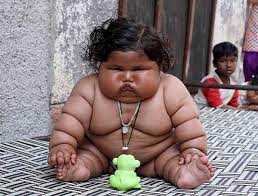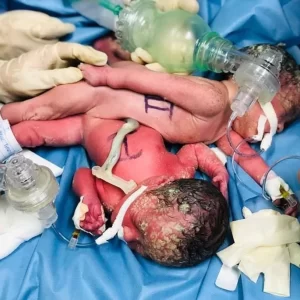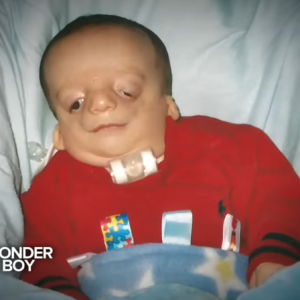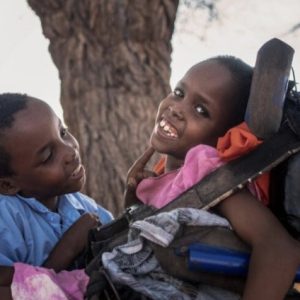Africa, with its diverse cultures, landscapes, and peoples, is a continent of immense beauty and potential. Yet, it is also home to some of the most pressing challenges facing children today. From poverty and malnutrition to lack of access to education and healthcare, millions of children across Africa are grappling with barriers that hinder their growth and development. In this article, we will explore the state of children in Africa, highlighting both the challenges they face and the opportunities for positive change.
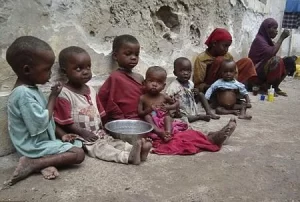
Challenges Facing African Children:
- Poverty: Poverty remains one of the most significant challenges affecting children in Africa. Millions of children live in households struggling to meet their basic needs, resulting in inadequate nutrition, lack of access to clean water and sanitation, and limited opportunities for education and healthcare.
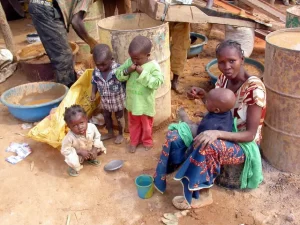
- Malnutrition: Malnutrition continues to be a pervasive issue in many parts of Africa, with a significant number of children suffering from stunted growth, micronutrient deficiencies, and acute malnutrition. Poor nutrition during the critical early years of life can have long-lasting consequences on a child’s physical and cognitive development.
- Healthcare Access: Access to quality healthcare remains a challenge for many children in Africa, particularly those living in rural and remote areas. Limited access to essential healthcare services, including immunizations, prenatal care, and treatment for common childhood illnesses, contributes to high rates of child mortality and morbidity.
- Education: Despite progress in recent years, millions of children in Africa still lack access to quality education. Factors such as inadequate school infrastructure, shortage of trained teachers, and cultural barriers often prevent children, especially girls, from attending school and completing their education.
- Child Labor: Child labor remains prevalent in many parts of Africa, with millions of children engaged in hazardous and exploitative work. Forced labor, child trafficking, and involvement in agricultural and informal sectors deprive children of their right to education, protection, and a childhood free from exploitation.
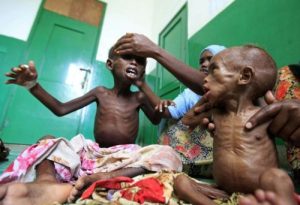
Opportunities for Positive Change:
- Investment in Healthcare and Nutrition: Increased investment in healthcare infrastructure, nutrition programs, and maternal and child health services can improve health outcomes for children in Africa. Strengthening health systems and expanding access to essential healthcare services can help reduce child mortality and morbidity rates.
- Education Reform: Investing in education, particularly for girls and marginalized communities, is crucial for breaking the cycle of poverty and empowering future generations. Initiatives aimed at improving school infrastructure, increasing teacher training, and promoting inclusive education can help ensure that all children have access to quality learning opportunities.
- Child Protection: Strengthening child protection systems and enforcing laws against child labor, trafficking, and exploitation are essential for safeguarding the rights and well-being of children in Africa. Providing social support services, raising awareness, and empowering communities to protect children from abuse and exploitation can help create safer environments for children to thrive.
- Empowerment of Women and Girls: Promoting gender equality and women’s empowerment is fundamental to improving the lives of children in Africa. Investing in girls’ education, supporting women’s economic empowerment, and addressing harmful cultural practices such as child marriage can help create a more equitable society where all children have equal opportunities to fulfill their potential.
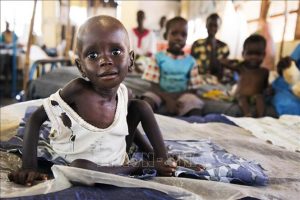
Conclusion:
The challenges facing children in Africa are complex and multifaceted, but they are not insurmountable. By addressing the root causes of poverty, malnutrition, lack of education, and child exploitation, African countries can create a brighter future for their children. Through concerted efforts by governments, civil society organizations, and the international community, we can work towards ensuring that every child in Africa has the opportunity to thrive, grow, and realize their full potential.

